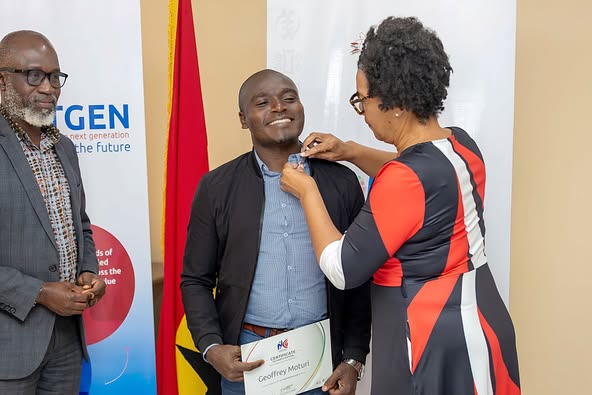When the term nuclear is mentioned, many immediately think of bombs, missiles, or the Fukushima accident. However, nuclear science has far more diverse and peaceful applications that make life easier — from producing reliable, clean nuclear power with zero greenhouse gas emissions during operation, to advancing cancer treatment, controlling mosquitoes, improving agricultural yields, and much more.
This week, the Ghana Atomic Energy Commission (GAEC), through the Regional Energy Training Centre (RETC) and in partnership with the United States Department of Energy (USDoE), invited me to participate in the NextGen Nuclear Initiative – Education Workshop for Nuclear Advocates held in Accra, Ghana.
The NextGen Nuclear Initiative is a forward-looking youth engagement program that positions students, young professionals, and digital communicators as key contributors to Africa’s secure, innovation-driven nuclear energy future. The initiative emphasizes accessible communication, peer-to-peer advocacy, and content co-creation that resonates with tech-savvy and digitally connected audiences across the continent.
As part of the workshop, I:
— Gained foundational knowledge of nuclear science and electricity generation systems.
— Explored peaceful applications of nuclear technologies in health, agriculture, and industry.
We also visited key nuclear facilities under GAEC, including the Ghana Research Reactor-1 Centre (GHARR-1). Our guided tour included the E2 SMR Simulator at the NuScale Energy Exploration (E2) Center in Ghana — an innovative, hands-on, state-of-the-art collaborative facility where visitors apply nuclear science and engineering principles through simulated, real-world nuclear power plant operation scenarios. The E2 Center’s custom-built Human System Interface (HSI) models the control room of a NuScale 12-unit Small Modular Reactor (SMR) plant, featuring:
— Process Library
— Tiered Notification System
— Fully Automated Systems
— Integrated Emergency Procedures
We also studied how Ghana manages radioactive waste, observed nuclear applications firsthand, and interacted with technical staff.
The workshop concluded at the office of Professor Samuel Boakye Dampare, Director General of GAEC, where certificates were issued. Ms. Aleshia Duncan, Deputy Assistant Secretary for International Cooperation in the U.S. Department of Energy’s Office of Nuclear Energy, presented us with medals.
It was a great success. As a nuclear ambassador for Africa, I am committed to spreading the message of nuclear’s peaceful benefits across the continent and beyond.
I sincerely thank the CEO of Kenya’s Nuclear Power and Energy Agency (NuPEA), CS Justus Wabuyabo, for nominating me to represent Kenya in this workshop. Asante, CEO — Kenya was well represented.
